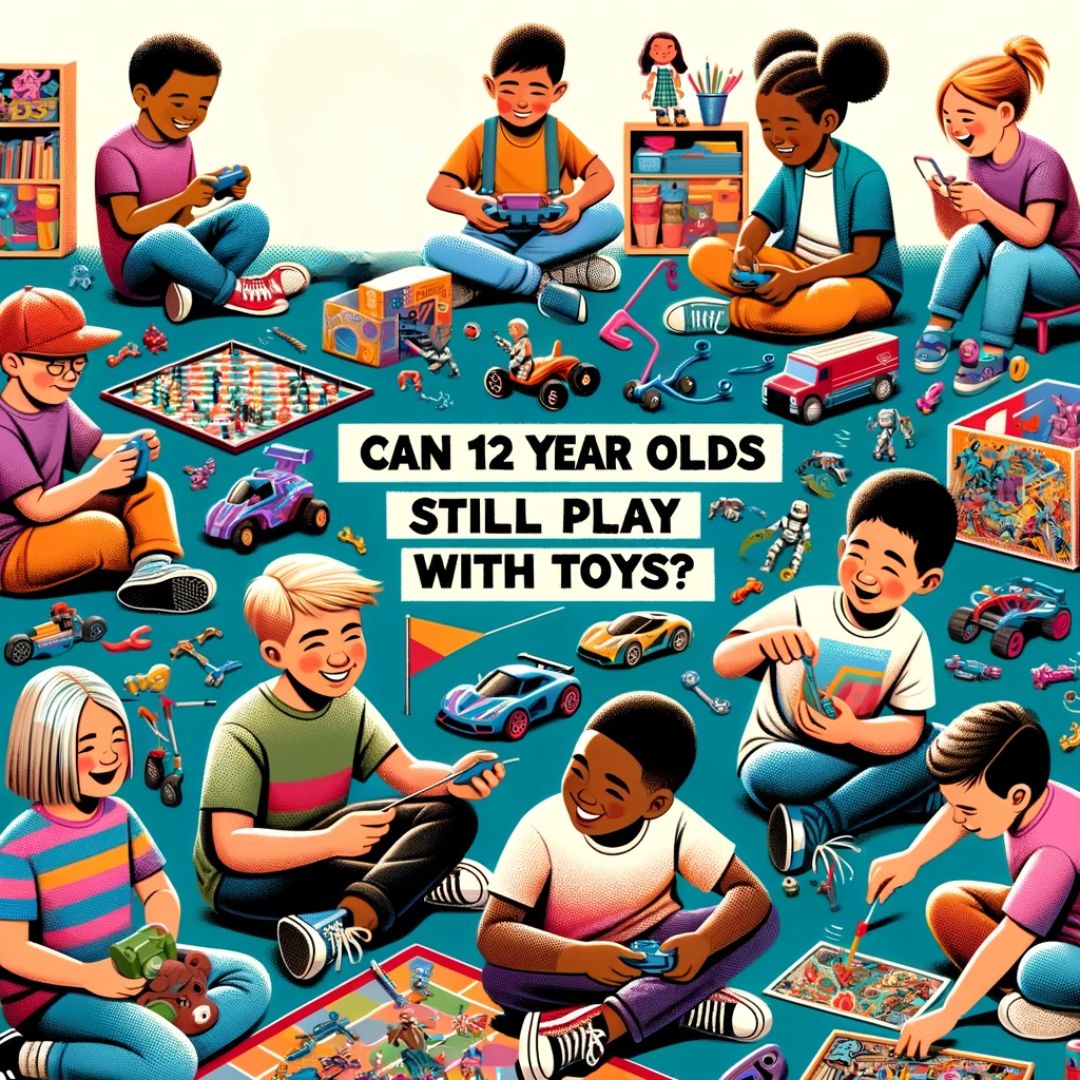
Published: 11.12.23
Updated: 21.8.24
In a world where childhood seems to be getting shorter, many parents and guardians find themselves pondering, "Can 12-year-olds still play with toys?" This question reflects a common uncertainty in the transitional phase of preteens.
In this article, we delve into the significance of play for 12-year-olds, looking at its impact on various aspects of their development.
Is it Normal for 12-Year-Olds to Play with Toys?
Yes, it is completely normal for 12-year-olds to play with toys. At this age, many children (boys or girls), regardless of gender, engage in toy play. It's a healthy part of development, with no specific age limit for outgrowing toys. Many adults continue to enjoy toys as well.
Cognitive and Emotional Development
The Role of Play in Preteen Growth
Play isn't just for little kids; it's a critical part of cognitive and emotional growth for preteens.
At 12, children are at a pivotal stage where imaginative and structured play can greatly foster creativity and problem-solving skills.
Toys and games that challenge their intellect and creativity are particularly beneficial.
They help in emotional expression and management, allowing 12-year-olds to navigate the complexities of their emotions in a safe and controlled environment.
Social Development

Fostering Skills Through Cooperative Play
Social development in preteens takes a significant leap, and toys play a vital role in this journey.
Activities that encourage cooperative play and role-playing contribute immensely to their social skills.
It's through these interactions that 12-year-olds learn about teamwork, empathy, and conflict resolution - skills that are essential as they navigate their teenage years.
Related: Why Toys Are So Important for Child Development
Educational Value
Beyond Just Play: Learning Through Toys
Toys for 12-year-olds often carry an educational value, especially those promoting STEM skills, critical thinking, and language development.
These toys bridge the gap between play and learning, making education an enjoyable experience.
They lay the foundation for academic excellence and ignite a passion for lifelong learning.
Technology and Toys

Balancing Traditional Play with Modern Tech
Technology has undoubtedly influenced the toy industry, changing the way preteens interact with their playthings. However, it's crucial to strike a balance.
While tech-based toys can be engaging and educational, traditional toys that encourage physical activity and hands-on learning are equally important for a well-rounded developmental experience.
Related: Why Children Need to Be Adaptable in a Rapidly Changing World
Parental Involvement
Guiding Play Choices for Optimal Development
Parental support is key in selecting toys that are both age-appropriate and aligned with the child's interests and developmental stage.
Parents play a crucial role in guiding their children towards toys that will enhance their growth while also allowing them the freedom to choose what they enjoy.
Respect for Individuality
Every Child is Unique
At 12, children's interests can vary widely. It's important to respect their individuality, understanding that while some may still enjoy traditional toys, others might prefer different activities.
This respect for their preferences is crucial for their self-esteem and personal growth.
Balancing Play and Responsibilities

Finding the Middle Ground
As 12-year-olds face increasing academic and extracurricular demands, balancing playtime with these responsibilities becomes essential.
Parents and guardians can help their children find this balance, ensuring that play remains a part of their routine for holistic development.
Toys for Tweens
What's Popular Among 12-Year-Olds?
Toys and activities for 12-year-olds often include building sets, creative arts and crafts, board games, and sports equipment.
These toys cater to their evolving interests and skills, offering challenges that are both enjoyable and growth-promoting.
Long-Term Benefits of Play
Building a Foundation for Future Success
The benefits of play extend far beyond childhood. The skills and values developed through play have a lasting impact on a child’s future success and overall well-being.
Engaging in play helps instil a love for learning, resilience, and adaptability - traits that are invaluable in adulthood.
Conclusion
In conclusion, toys and play hold immense value for 12-year-olds.
They are not just tools for entertainment but are instrumental in shaping cognitive, emotional, social, and physical development.
So, to answer the question, "Can 12-year-olds still play with toys?" - absolutely, yes.
Toys and play are essential components of a 12-year-old’s journey towards adolescence, helping them learn, grow, and thrive in a complex world.
Parents and guardians should encourage and support their preteens in embracing play, ensuring a balanced and enriching childhood experience.
Get in Touch 🚀
Loved our article on “Can 12 Year Olds Still Play With Toys?” Got the itch to dive into more wheely-awesome info?
Whether you're a parent or a grandparent, we're here for all your kids ride-on toy questions! 🚗💨
Feeling click-happy?
Jump straight into our wonderland at RiiRoo.com.
Or, if you're more the chatty type, give our Live Chat a whirl and let's talk toys!







Share:
What is the Difference Between the Mercedes SL65 AMG and the RiiRoo Mercedes SL63?
Which is Faster a 2-stroke or 4-stroke?